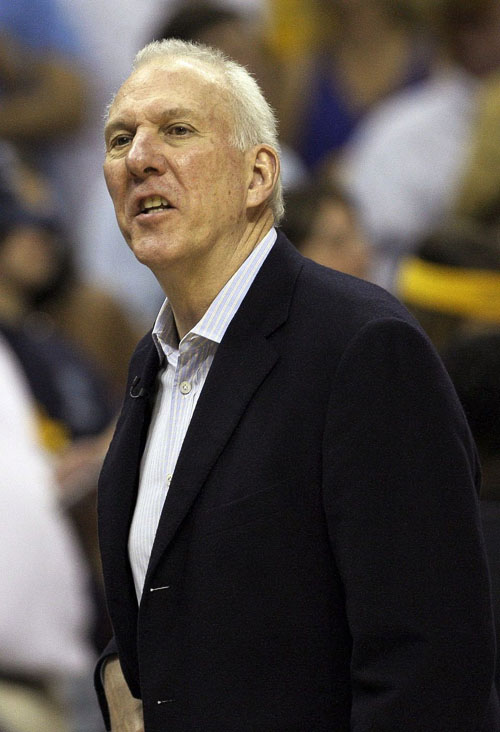
Last month, San Antonio Spurs head coach Gregg Popovich was asked to comment on the remarkably consistent play of Tim Duncan, the 37-year-old future Hall of Famer who has spent his entire career with the Spurs. The team was in the midst of its sweep of the Los Angeles Lakers in the first round of the NBA playoffs, and Popovich stated his intention to follow his star player into retirement when Duncan decides to leave the game for good. There is no timetable in place for the decision, and “Coach Pop” has spent the last few years limiting Duncan’s playing time during the season in preparation for extended playoff campaigns. Nonetheless, Popovich’s announcement served as a reminder that life in the NBA without the prolific duo may not be all that far away.
It has been nearly two decades since Popovich, then the general manager and vice president of basketball operations for the Spurs, hired himself for the head coaching position in 1996. Over the years since then the league has seen legends come and go, instituted a host of rule changes and endured two lockouts. But things are more or less the same in San Antonio, with Popovich and Duncan getting ready to compete for their fifth NBA title together. On Thursday the Spurs will make their first appearance in the finals in six years, though they have remained in contention nearly every year since claiming the franchise’s first championship in 1999.
Popovich, who is known for his terse and dismissive manner with sideline reporters, remains one of the most fascinating personalities in the game. A graduate of the United States Air Force Academy who once considered a career in the CIA before opting to become a basketball coach, his first head coaching job came at Division III Pomona-Pitzer in Southern California. Without high-quality facilities, top athletes or even a single scholarship to work with, Popovich built his reputation as a cerebral tactician with a knack for the getting the most out of the talent available to him.
Many high-profile coaches make good livings with one system or style of play, sometimes bringing it with them relatively unaltered through decades of a successful career. Popovich’s style, on the other hand, is one of supreme adaptability, changing with the times and maximizing the potential of whatever combination of players he has at his disposal. After winning titles in 1999, 2003 and 2005 with a physical, defense-oriented approach built around Duncan’s talents, Popovich began to develop the offensive talent on the roster, using point guard Tony Parker as the catalyst for his new system. Parker was the MVP of the finals during San Antonio’s last championship run in 2007, and in the ensuing years the Spurs gradually morphed into a dynamic scoring machine focused on constant motion, three-point efficiency and ball movement—and, once again, they are on the cusp of a title.
With a deep bench full of versatile role-players that have become the trademark of Popovich’s championship squads, San Antonio will try to claim Larry O’Brien Trophy title again this week. After fading in the later rounds over the past few postseasons, it remains to be seen whether the Spurs will have enough left in the tank for one more seven-game showdown against the best of the Eastern Conference. But it stands to reason that Coach Pop will be ready for whatever comes. If anyone can figure out a way to make it happen, he can.

